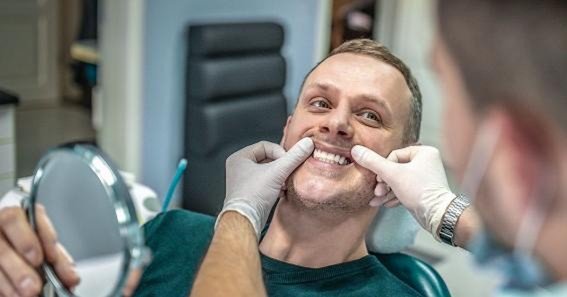If you’ve ever wondered, “why does my crown hurt when i put pressure on”, you’re not alone. Many patients experience discomfort after receiving a dental crown. Although a crown is designed to protect a damaged tooth, it can sometimes lead to pain when pressure is applied. This discomfort may stem from several issues ranging from improper fit to underlying decay or nerve sensitivity.
Common Causes of Crown Pain
- High Crown Placement: If the crown is even slightly higher than your natural bite, it can create excessive pressure on the tooth when you chew.
- Decay Under the Crown: The natural tooth underneath can still develop cavities. Decay at the margin where the crown meets the tooth may cause pain, especially when biting down.
- Nerve Sensitivity or Inflammation: During crown preparation, a portion of the tooth structure is removed. This process may irritate the nerves, resulting in temporary sensitivity or pain.
- Infection: Infections from bacteria that seep under a poorly sealed crown can trigger inflammation and pain.
- Bruxism (Teeth Grinding): Grinding or clenching your teeth can exert extra pressure on the crown, leading to discomfort over time.
Diagnosis and Treatment Options
A thorough dental examination is essential to pinpoint the exact cause of your crown pain. Your dentist may:
- Conduct a Visual and X-Ray Examination: To check for decay, improper fit, or fractures.
- Adjust the Crown: Minor adjustments can realign the crown, restoring proper bite balance.
- Treat Underlying Infections: This may involve antibiotics or a root canal if the nerve is affected.
- Recommend a Night Guard: To prevent damage from teeth grinding if bruxism is the culprit.
Prevention Tips
- Maintain Excellent Oral Hygiene: Regular brushing, flossing, and dental checkups help prevent decay around your crown.
- Avoid Hard or Sticky Foods: This minimizes the risk of damaging the crown or underlying tooth structure.
- Follow Your Dentist’s Advice: Keep up with any recommended follow-up appointments to ensure the crown remains well-fitted and healthy.
Conclusion
Understanding why your crown hurts when you put pressure on it is the first step toward effective relief. Whether it’s due to a high crown, decay, infection, or bruxism, identifying the cause can help you take the appropriate action. If discomfort persists, be sure to consult your dentist promptly for a tailored treatment plan.
Frequently Asked Questions (FAQs)
-
What should I do if my crown hurts when I bite down?
If you experience pain while biting, schedule an appointment with your dentist. They can check if the crown is too high or if there is decay or infection underneath that needs treatment. -
Can a poorly fitted crown cause nerve pain?
Yes, an ill-fitting crown can lead to excessive pressure on the underlying tooth and irritate the nerve, causing discomfort or sensitivity. -
Is it normal to experience crown pain immediately after the procedure?
Some discomfort is common after crown placement. However, pain that persists beyond a couple of weeks or worsens with pressure should be evaluated by your dentist. -
How can I prevent crown pain in the future?
Maintaining good oral hygiene, avoiding hard foods, and wearing a night guard if you grind your teeth can help prevent crown-related pain. -
When should I consider replacing my crown instead of just adjusting it?
If the crown is cracked, damaged, or if decay has set in beneath it, your dentist may recommend replacing the crown entirely to restore function and comfort.










